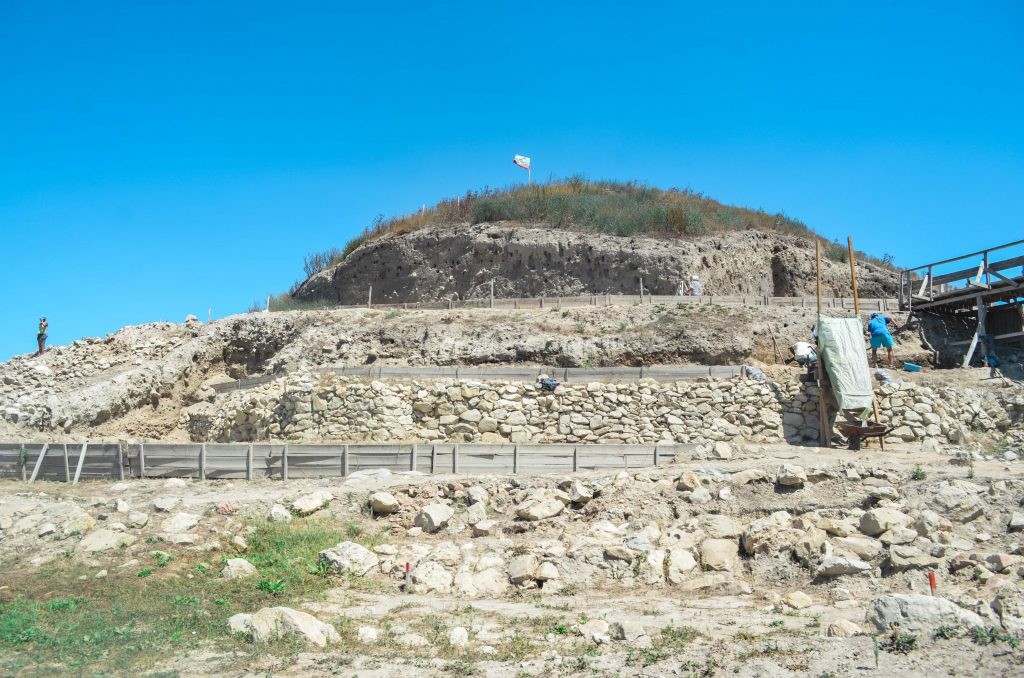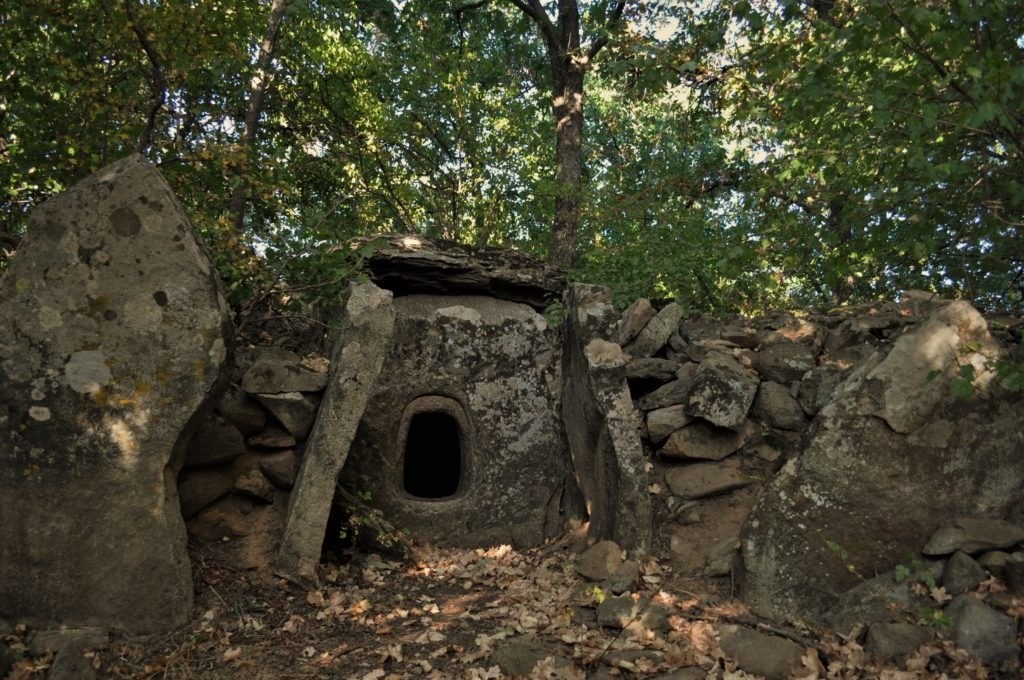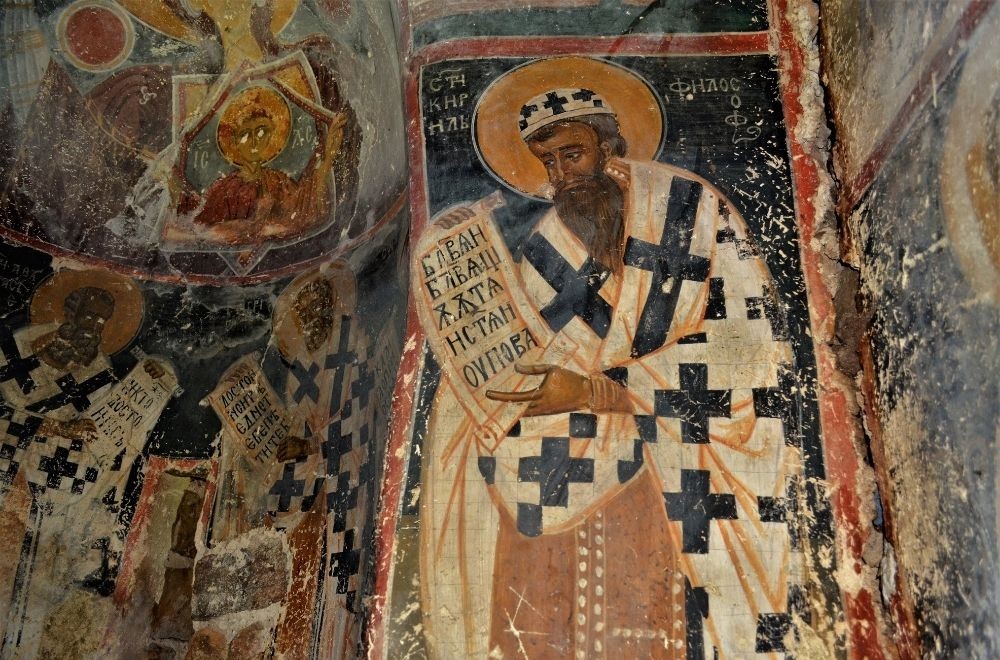Bulgaria is among the European countries with the richest history. In terms of its cultural and historical heritage, Bulgaria is high in the European ranking. With more than 40,000 cultural monuments, Bulgaria places right after Italy, Greece and Turkey. Seven of these cultural monuments were included in the list of World Heritage Sites. Apart from dry statistics, there are other indisputable facts that prove that traces of some of the oldest civilizations in Europe were found on Bulgarian territory. Here are five of them:

Earliest evidence of Homo sapiens in Europe found in Bulgarian cave
In the spring of 2020, during excavations in Bulgaria’s Bacho Kiro cave near Dryanovo, a team of Bulgarian and foreign archaeologists came across a sensational finding-animal bones, tools made of stone and bones, beads and pendants, and remains of human fossils which date to 45,000- 47,000 years ago. These are the earliest remains of Homo sapiens discovered on the territory of Europe. The new findings are evidence that in that period, the Homo sapiens settled in this part of the continent and began living together with the Neanderthals. Until recently, the traces of Homo sapiens discovered in the Romanian cave Pestera Muierii, which date to 41,000 years ago, were considered the oldest in Europe.
The oldest processed gold in Europe and the world
In 1972, archaeologists came across an ancient necropolis near the coastal city Varna containing the oldest processed gold in the world. More than 3,000 golden items weighing more than 6 kilograms were discovered during the excavations. The exquisitely made artefacts date back to the beginning of the 4th century BC and are associated with the so-called Chalcolithic culture in the region/ part of which is Solnitsata (The Saltworks) near Provadia-https://bnr.bg/en/post/101364920/mouthless-mask-and-a-mass-grave-saltworks-near-provadia-reveal-their-secrets/ regarded as the oldest one in Europe.
The oldest continuously inhabited city in Europe
The history of the city of Plovdiv began more than 8,000 years ago. Life in Plovdiv has continued for centuries-from the Prehistoric period to the present day. According to researchers, this is the oldest town in Europe, where life has never stopped. The city was inhabited before the Thracian epoch and the Roman period. According to some global rankings, Plovdiv is the oldest continuously inhabited city in Europe and the fifth oldest continuously inhabited city in the world after Jericho (Palestine), Byblos (Lebanon), Damascus and the Iranian city of Susa.

The oldest country in Europe
Bulgaria is the oldest country in Europe and the only country that has not changed its name since it was first established. In the 7th century AD, the Proto- Bulgarians led by Khan Asparuh crossed the Danube River and in 681, they established their own state south of the Danube. The First Bulgarian Empire reached its cultural and territorial apogee in the early 10th century. It had a great influence on the European nations through its unique literary schools and literature.
The oldest autocephalous Eastern Orthodox Church in Europe
The Bulgarian Orthodox Church has been an autocephalous Orthodox jurisdiction since 879. In 927, the Patriarchate of Constantinople recognized the autocephalous status of the Bulgarian Orthodox Church and acknowledged its patriarchal dignity. The Bulgarian Patriarchate precedes the autocephaly of the Russian Orthodox Church by 662 years and the autocephaly of the Serbian Orthodox church by 292 years.

Photos: Veneta Nikolova
English version: Kostadin Atanasov
On November 10, 1989, at a plenum of the Central Committee of the Bulgarian Communist Party, Todor Zhivkov was removed from the position of General Secretary - the highest position in the party and the state. What happened at the..
Archaeologists have discovered a very rare and valuable glass bottle in a 2nd-century tomb in the southern necropolis of the Roman colony Deultum near the village of Debelt (Southeastern Bulgaria). What makes it unique is that it depicts the myth of..
The Days of Croatian Archaeological Heritage, which will last until 8 November, begin today at the National Archaeological Institute with Museum at the Bulgarian Academy of Sciences (NAIM-BAS) in Sofia. The event is organised by the Croatian Embassy in..
The Museum of the Jewish People in Tel Aviv , Israel, today commemorates the 130th anniversary of the birth of Dimitar Peshev, a righteous man of the..
The Feast of the Epiphany - the entry of the Theotokos into the Temple - is one of the oldest and most revered feasts in the Orthodox world. It was..

+359 2 9336 661
